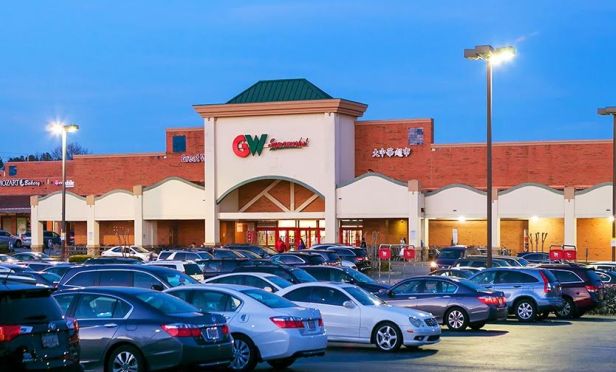
ATLANTA—With all the multifamily growth in Atlanta, retail has followed. But not all sector of the industry are thriving. GlobeSt.com caught up with Karim Fidel, founder and principal at Unison Realty Partners, to get his thoughts on retail trends in part three of this exclusive interview. You can still read parts one and two: This Retail Sector Is Especially Safe Going Into 2017 and Why Omni-Channel Retail May Spike in 2017.
GlobeSt.com: How rapidly is experiential retail gaining momentum? What do you expect on this front in 2017 and what are the implications?
Fidel: We're seeing experiential retail take hold pretty quickly. It's particularly effective when stores are able to adapt their stores to their specific consumers.
For instance, the experiential retail platform a high-end retailer might adapt will naturally be different from the experiential platform a grocery store will adapt, because these stores need to cater to the specific wants and needs of their consumers. Still, this trend is relatively new, and there is likely to be some trial-and-error as stores figure out what works and what doesn't.
In 2017, we should expect to see new “takes” on experiential retail. For instance, at one of our properties, JC Penney brought in in-store Sephora and Disney Store concepts to attract a wider range of consumers and provide a unique, experiential shopping experience. We anticipate more concepts like this that will keep shoppers coming back and engaged.
GlobeSt.com: What other trends are you seeing or do you expect to see in retail real estate in 2017?
Fidel: Overall, the trends that I think will continue to develop are the strength of secondary and tertiary markets, the growth of—and more creativity in—experiential retail, and more stores, like Amazon, looking towards an omni-channel approach for consumers.
GlobeSt.com: What are the challenges or X factors on your radar screen?
Fidel: In retail real estate investment more now than ever before, it's essential to look at and evaluate the fundamentals of a property. With our properties, that means considering the tenants, location, the community's demographics, and the opportunities for long and short-term growth. Foregoing these considerations could leave investors making investment decisions too rapidly. Whether you're a REIT or a smaller investment management company, these fundamentals are essential to determining the future outlook for a property.

ATLANTA—With all the multifamily growth in Atlanta, retail has followed. But not all sector of the industry are thriving. GlobeSt.com caught up with Karim Fidel, founder and principal at Unison Realty Partners, to get his thoughts on retail trends in part three of this exclusive interview. You can still read parts one and two: This Retail Sector Is Especially Safe Going Into 2017 and Why Omni-Channel Retail May Spike in 2017.
GlobeSt.com: How rapidly is experiential retail gaining momentum? What do you expect on this front in 2017 and what are the implications?
Fidel: We're seeing experiential retail take hold pretty quickly. It's particularly effective when stores are able to adapt their stores to their specific consumers.
For instance, the experiential retail platform a high-end retailer might adapt will naturally be different from the experiential platform a grocery store will adapt, because these stores need to cater to the specific wants and needs of their consumers. Still, this trend is relatively new, and there is likely to be some trial-and-error as stores figure out what works and what doesn't.
In 2017, we should expect to see new “takes” on experiential retail. For instance, at one of our properties, JC Penney brought in in-store Sephora and Disney Store concepts to attract a wider range of consumers and provide a unique, experiential shopping experience. We anticipate more concepts like this that will keep shoppers coming back and engaged.
GlobeSt.com: What other trends are you seeing or do you expect to see in retail real estate in 2017?
Fidel: Overall, the trends that I think will continue to develop are the strength of secondary and tertiary markets, the growth of—and more creativity in—experiential retail, and more stores, like Amazon, looking towards an omni-channel approach for consumers.
GlobeSt.com: What are the challenges or X factors on your radar screen?
Fidel: In retail real estate investment more now than ever before, it's essential to look at and evaluate the fundamentals of a property. With our properties, that means considering the tenants, location, the community's demographics, and the opportunities for long and short-term growth. Foregoing these considerations could leave investors making investment decisions too rapidly. Whether you're a REIT or a smaller investment management company, these fundamentals are essential to determining the future outlook for a property.
© Touchpoint Markets, All Rights Reserved. Request academic re-use from www.copyright.com. All other uses, submit a request to [email protected]. For more inforrmation visit Asset & Logo Licensing.






